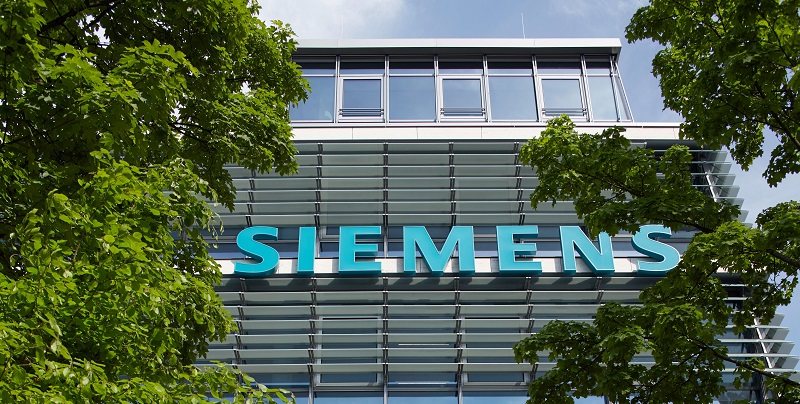Schedule a Call Back
Budget FY25 Decoded!
 Articles
Articles- Jul 31,24

Despite global economy remaining under the grip of policy uncertainties, India’s economic growth continues to shine driving by domestic consumption and better-expected exports market in the last quarter of FY24 and first quarter of FY25. Against this backdrop, Union Finance Minister Nirmala Sitharaman presented the budget FY25 on July 23, 2024 with funding focus on nine priorities including productivity and resilience in agriculture, employment & skilling, human resource development and social justice, manufacturing & services, urban development, energy security, infrastructure, innovation, research & development, and next generation reforms. “This budget paves way for a significant growth towards a 'Viksit' Bharat. With one lakh crore fund being allocated for research and innovation, it will help in providing a substantial sustainable growth opportunity for our country by 2047. The policy highlighting on the use of appropriate energy transition will help in balancing the imperatives of employment leading to a more organised growth and environmental sustainability,” said Meenu Singhal, Regional Managing Director, Socomec Innovative Power Solutions, Greater India.
He added, “The budget’s emphasis on providing skilling programmes will empower the youth in obtaining quality employment opportunities. We appreciate government’s move to reduce the corporate tax for foreign companies from 40 per cent to 35 per cent. This endeavour will improve the overall business environment, making it conducive to foreign direct investments into the country which will create more employment opportunities for the youth and stimulate economic growth.”
Staying invested in infrastructure
As always infrastructure has been a strong area for subsequent budgets which have been announced over the years. This time as well, a provision of Rs 11 trillion, which is 3.4 percent of the GDP, has been positive for infrastructure development which has a multiplier effect on the economy. “Critically, the phase 4 of PMGSY, a program which focuses only on rural roads connecting over 25,000 rural habitations, has also been announced. This will create employment and reduce the farm to market distance sprucing up rural economy,” said Deepak Shetty, CEO and Managing Director, JCB India Ltd.
Infrastructure has been a trust of the Narendra Modi-led Government in the last 10 years which has benefited companies in the sector. This is reflected in the surging order book of the companies. The total order book of 25 top companies – across infrastructure, power and capital goods – rose by 18.3 per cent to Rs 12.22 trillion in FY24 compared with Rs 10.33 trillion in FY 2022-23. The total order book position of top 25 firms had increased by 9.7 per cent in FY23 from Rs 9.42 trillion in FY22.
Sunil Mathur, Managing Director and Chief Executive Officer, Siemens Ltd, commented, “We welcome the Government’s consistent approach towards fiscal consolidation, supporting capex in infrastructure by reconfirming the allocation of Rs 11.11 trillion in the budget as also additional allocations towards improving urban and rural infrastructure. We also welcome the Government’s focus on employment generation, skilling, woman empowerment, MSMEs and climate change mitigation as well as their encouragement to the states to carry out land and labour reforms and improve ease of doing business further. We believe this budget paves the way for the next generation of reforms which we are confident will lead India to its deserved place of being Viksit Bharat.”
The Finance Minister's announcement of Rs 2.66 trillion for rural development, including rural infrastructure, in the Union Budget 2024-25 is considered to be a significant investment. Baba Kalyani, Chairman & MD, Bharat Forge Ltd, said, “The focus on natural farming and agricultural productivity, incentivising job creation and employment, continued impetus to bolster MSMEs, modernising urban cities and policies aimed at accelerating India’s energy transition will have a long-standing affect that would significantly improve economic resilience in an otherwise volatile world economy. I would also particularly commend the fresh-thinking and approach of the government in skilling and urban development - both of which demanded urgent attention. Infrastructure creation, which is a direct contributor to India’s competitiveness and positioning as a favoured investment destination, has been the hallmark of Prime Minister Modi’s governments; continued attention towards roads, ports, plug & play industrial parks, irrigation projects and affordable housing is noteworthy.”
As part of India's new blueprint for holistic growth, the increased focus on urban development, infrastructure, innovation, and next-generation reforms will have a multiplier effect on the economy. With a strong emphasis on energy security, industrial development, and MSME support, India is poised for sustainable growth and development, commented Ravichandran Purushothaman, President, Danfoss India.
According to him, the budget's emphasis on urban development and infrastructure growth is a significant step towards driving economic expansion. Ravichandran elaborated, “The Government’s substantial allocation of ? 1.52 trillion towards agriculture and allied sectors is to be lauded. Initiatives such as natural farming, pulses, and oilseeds missions, along with the development of digital public infrastructure, are crucial for enhancing productivity and sustainability. Enhanced focus on food security, irradiation, and safety testing labs will revolutionise India's food landscape, ensuring quality and accessibility. The government's commitment to climate resilience and sustainable growth is commendable and the focus on climate-resilient agriculture and flood mitigation measures underscores the government's dedication to environmental sustainability.”
Initiatives announced in Budget FY24 collectively signal a robust blueprint for India’s progressive, integrated and inclusive development. Baba Kalyani added, “I greatly appreciate the operationalisation of Anusandhan NRF and the exclusive venture-fund for space segment. More importantly, the 1-lakh crore financing pool to bolster private sector driven research and innovation at commercial scale will have a great impact in transitioning India towards a product’s nation in the long-term. While the budget allocation for defence industry is in expected lines, creation of the Critical Minerals Mission and articulation of India’s strategy on small modular nuclear reactors will go a long way in bolstering the AatmaNirbhar Bharat agenda.”
According to Amit Sharma, Managing Director & CEO, Tata Consulting Engineers, the Indian government's transformative and futuristic initiatives are set to accelerate the growth of the nation's infrastructure landscape while enabling technological advancement and ensuring a viable and sustainable energy transition. He explained, “The 2024 Union Budget's focus on green growth with a ?35,000 crore investment, the adoption of nuclear, clean energy with Bharat Small Reactor (BSR) and Bharat Small Modular Reactor (BSMR), and private participation in the nuclear energy arena, incentivising the adoption of higher efficiency Advanced Ultra Super Critical (AUSC) thermal plants, and focus on Pumped Storage Projects (PSP) for renewable energy integration, alongside a national critical metals and minerals policy, and the promotion of domestic solar cell and module manufacturing, create a comprehensive roadmap for the energy transition in hard-to-abate sectors.”
Skilling and manufacturing in focus
Welcoming the employment and manufacturing generation initiatives outlined in the budget, Mahesh Viswanathan, Deputy CEO and CFO, Finolex Cables Ltd, said, “The introduction of a credit guarantee scheme for term loans on machinery and equipment purchases, without collateral or third-party guarantees, is a progressive step that will empower MSMEs to innovate and expand, driving growth and job creation across the nation. Additionally, the exemption of customs duties on 25 critical minerals is a strategic move towards strengthening the economy and ensuring vital resources are available for the manufacturing sector. As the budget prioritises expanding the manufacturing footprint, we anticipate a corresponding increase in consumer uptake.”
Budget aims to strengthen the fundamental pillars that would propel Indian economy towards a Viksit Bharat. Shalabh Chaturvedi, Managing Director – India & SAARC region, CASE Construction Equipment, said, “The government’s holistic approach to infrastructure, skilling, and rural development are vital initiatives. Additionally, the focus on employment and skills with an allocation of Rs 2 trillion is encouraging. The various schemes for employment-linked incentives and skilling programs will create a skilled workforce ready to meet the demands of modern infrastructure projects. This budget reflects a balanced approach to developing infrastructure while empowering the workforce, and we are excited to be a part of this transformative journey. Initiatives such as providing one month’s wage for first-time employees, creating job opportunities for 30 lakh youths in manufacturing, and supporting skilling programs for 20 lakh individuals are a great way of boosting productivity, enhancing infrastructure and employment opportunities across the country.”
The budget 2024-25 shows the government's comprehensive approach to prioritise skilling, infrastructure development, and digital transformation. Niranjan Nayak, MD, Delta Electronics India, said, “The focus on creating a skilled workforce through internship programs aligns perfectly with our own commitment to nurturing talent and driving innovation. We also applaud the budget's emphasis on increasing women's participation in the workforce. Delta strongly believes in the power of diversity, and these measures will contribute significantly to India's socio-economic progress. Overall, the budget serves as a catalyst for accelerating our growth trajectory and supporting India's digital transformation journey.”
The budget very critically focusses on employment and skilling, through a variety of initiatives. “Employment and skilling opportunities will be created through financial assistance where over 20 lakh youth will be skilled over a five-year period. Additionally, to modernise the Industrial Training Institutes, 1000 such institutes will be upgraded in a hub and spoke arrangement. This will certainly create the necessary skills for youth for gainful employment in industries. With a focus on manufacturing, particularly MSMEs, the Hon’ble Minister has extended credit support and has also announced 12 new industrial parks which will create a manufacturing conducive ecosystem,” said Deepak Shetty.
The budget marks a significant stride for the manufacturing sector, especially for MSMEs. Bharat Gite, MD & CEO, Taural India Pvt Ltd, stated, “The focus on facilitating term loans for machinery purchases and financing technology support for MSMEs is commendable, as it will enhance productivity and competitiveness, enabling smaller enterprises to scale up their operations and contribute more effectively to the economy. Employment and skill building are crucial, and the incentives for job creation in manufacturing, linked to EPFO contributions for employers hiring 30 lakh youth, are strategic. The provision of rental housing for industrial workers through PPP mode addresses a vital need for affordable living arrangements. The emphasis on increasing women's workforce participation is particularly noteworthy. Establishing hostels and women-specific skilling programs will help bridge the gender gap and provide women with the necessary resources and opportunities to thrive in the industrial sector.”
Rahul Garg, CEO & Founder, Mogilx, welcomed, the removal of angel tax for India's startup ecosystem. “This, coupled with the establishment of a ? 10 billion VC fund for the space economy, will foster innovation. The budget’s focus on manufacturing, with the introduction of plug-and-play industrial parks, is progressive. MSMEs will benefit significantly from the credit guarantee scheme, new assessment models by PSU banks, and increased Mudra loan limits. The substantial allocation of ?11 trillion for infrastructure especially nature resilient is crucial for building a Viksit Bharat. The strategic shift towards nuclear energy as a major power source is visionary,” he elaborated.
Driving auto industry growth
The Automotive Component Manufacturers Association of India (ACMA) has welcomed the budget's focus on inclusive growth, development of infrastructure, ease of doing business, enhanced outlay for capital expenditure, impetus on growth & development of manufacturing & MSMEs and thrust on skilling & research. Shradha Suri Marwah, President ACMA & CMD Subros, said, “ACMA is also delighted by the measures announced towards employment, skilling, internships and research. Reduction in customs duty to nil on critical minerals such as lithium, copper, cobalt, nickel etc will encourage cell manufacturing in the country and add to the evolving EV ecosystem in the country. That apart, measures to facilitate higher participation of women in workforce are indeed welcome for fostering inclusive growth and encouraging gender diversity in the automotive value chain.”
Marwah added, “The budget, a blueprint for Viksit Bharat, will drive sustainable yet inclusive growth, especially in the manufacturing industry, at a rapid pace. Focus on strengthening of MSMEs through Credit Guarantee Scheme and credit support during stress period, measures to bolster energy security and encouragement to start-ups by abolishing angel tax are indeed steps in the right direction. Further, the proposals for personal income tax will put more money in the hands of people thus fuelling consumption leading to economic growth.”
The Indian automobile industry welcomes the continued emphasis on economic growth with several announcements especially the strong fiscal support for infrastructure in the next 5 years. The Society of Indian Automobile Manufacturers (SIAM), according to Vinod Aggarwal, President, SIAM and MD & CEO, VECV, has welcomed several proposals in the budget and expects following announcements to propel growth of the industry:
- Measures for skilling and upskilling and support to manufacturing and employment generation
- Support to MSMEs, many of whom form the large supplier base for the auto sector
- Exemption of customs duty on import of lithium, cobalt and other rare minerals and extension of concessional customs duty on li-ion cells till march 2026; and
- Withdrawal of equalisation levy of 2 per cent on e-transactions
According to Dheeraj Hinduja, Executive Chairman, Ashok Leyland, the Finance Minister has presented a growth-oriented and pro-development budget for 2024-25 by focusing on national infrastructure development, urban development, sustainable planning, and inclusive growth through a tech-enabled economy. “With this budget, the government aims to address key issues, provide targeted support, and sets a robust agenda for growth and development. The continued emphasis on fostering investment and enhancing road infrastructure, especially in Andhra Pradesh and Bihar will facilitate growth in the manufacturing and automobile sectors. Focus on private investment in infrastructure, mining and housing sector is also likely to boost the sale of CVs. Furthermore, reduction in duties on rare earth minerals will help in promoting sustainable mobility and this resonates with our commitment to fostering a cleaner and more sustainable future,” he added.
Yatin Gupte, Chairman & Managing Director, Wardwizard Innovations & Mobility Ltd, believes that the commitment to maintaining strong fiscal support for infrastructure projects over the next five years is a significant boost for the automotive sector. “The announcement to fully exempt customs duty on critical materials, such as rare earth metals including lithium, can further incentivize electric mobility. We are looking forward to receiving the benefit of this exemption along with the sectors mentioned by the Hon’ble Finance Minister,” he stated.
However, the EV sector was expecting more from the budget. “Abolishing the angel tax is a commendable decision to foster innovation and support the start-up ecosystem. However, we anticipated announcements on the FAME-III policy and special incentives for the EV sector, which weren't part of this budget. Maintaining policy consistency will be essential to the overall expansion of the electric vehicle market. We expect that the government will provide clarification and lower or eliminate taxes on last-mile delivery services before the present program expires this month,” said Rashi Agarwal, Co-founder and CBO, Zypp Electric.
Electrifying electronics manufacturing
Budget 2024-25 has made significant allocations for electronics manufacturing to speed up the economic growth. Ashish Dhakan, MD & CEO, Prama Hikvision India Pvt Ltd, said, "The budget estimate of 2024-25 for the Ministry of Electronics and Information Technology (MeitY), saw a 52 per cent increase in its allocation of Rs 219.37 billion, compared to the revised estimate of 2023-24, at Rs 144.21 billion. The electronics and infrastructure sectors got a big boost in the union budget; these initiatives will help the electronics security industry to grow faster."
The significant allocation for infrastructure development and technology upgrades shows the government's commitment to enhancing domestic manufacturing capabilities. Dhakan stated, “Increased funding for the PLI (Production-Linked Incentive) scheme would attract more investments and boost production capacity, enabling us to be more competitive on a global scale. The government's focus on the MSME sector and manufacturing is commendable. The scheme strengthens the manufacturing ecosystem, fostering innovation and competitiveness.”
Welcoming several announcements that reflect the government’s continued support for the renewable energy (RE) sector, Srivatsan Iyer, Global CEO, Hero Future Energies, stated, “The impetus on PM Surya Ghar Muft Bijli Yojana will help fast track nationwide adoption of roof top solar, helping expand our overall RE capacity. The proposed investment in pumped storage programmes is a much-needed step that will ensure smoother integration of growing RE, leading to more reliable supply of green power and grid stability. The focus on transitioning hard to abate industries to greener alternatives will catalyse the commercial and industrial (C&I) sector’s journey towards net zero. Introduction of a taxonomy for climate finance will help attract much needed capital for boosting climate resilience. Finally, the expanded duty exemptions will also help propel the RE sector ahead. This is a positive budget for the sector that should help continue the momentum of India’s energy transition.”
And some missed opportunities…
There are experts who are disappointed with Budget. N Jegatheesan, president, Tamil Nadu Chamber of Commerce and Industry, "While the budget announced a reduction in income tax rates, the benefits remain negligible for most taxpayers. A minor reduction in customs duty was noted, but, the anticipated broader tax reforms did not materialise. Despite a few positive measures, the Budget is largely seen as a missed opportunity for significant economic reform and creative solutions to current challenges."
Some industry experts point out lack of significant new measures to support the green hydrogen sector in the budget. This represents a missed opportunity despite the green hydrogen’s growing importance in global energy strategies. Vineet Bhatia, Executive Director, Grant Thornton Bharat, stated, "India’s fiscal support under National Green Hydrogen Mission (NGHM) for green hydrogen and its derivatives are creating an initial ecosystem for establishing the market, however, there is a necessity to provide additional support. Support such as including tax holiday or concessional corporate tax, additional fiscal support for production of green molecules, and electrolyser manufacturing which would increase India’s competitiveness in the global platform and counter the green subsidies offered by global counterparts."
Also, experts feel that the paid internship scheme (announced for the top 500 companies) should have included MSMEs, as they are the leading employment generators who often struggle to hire qualified people. This inclusion could have helped in job creation and economic development. Additionally, despite previous mentions of amending the act to scale up apprenticeships, this budget did not emphasise such a transformative opportunity. Some experts suggest allowing flexibility in the 12-month internship duration depending on the course and the requirements of the companies.
Investing in capacity expansion
Burgeoning investments in new projects in infrastructure and other sectors is generating demand for engineering and manufacturing firms. To fulfill the rising orders, companies’ capacity utilisation is increasing. As per the recent internal surveys of CII, the capacity utilisation levels of many sectors are upwards of 75 per cent (in some sectors such as cement, steel, and automobiles it is 80-90 per cent), which is leading to fresh investments. Some large capital goods and engineering companies are investing to create additional capacities. For example, as reported by Business Standard, nine engineering and capital goods companies, including Siemens, Larsen & Tourbo (L&T) and KEC International, have a combined capex of about Rs 115 billion or more for FY24.
Calendar year 2024 has started on a good note for Indian manufacturing. According to the Reserve Bank of India, capacity utilisation in manufacturing increased to 76.5 per cent in Q4 of 2023-24 from 74.7 per cent in the preceding quarter, reaching well above the long-term average of 73.8 per cent. This high utilisation necessitates capacity building with fresh investments. The private sector’s capex share in the country’s GDP, which rose to 23.8 per cent in FY23, is expected to increase further. Moreover, the contribution of high-end manufacturing exports to GDP improved during FY24 with India’s electronics exports increasing 23.6 per cent to $ 29.12 billion.
With emphasis on infrastructure, skill development, MSMEs, and manufacturing, the FY25 Budget is aimed at helping India to drive its manufacturing-led-expansion of GDP and exports.
Related Stories

Bharat Forge Q2FY25 results
BFL group's defence business posted revenue of Rs 5.09 billion in Q2 registering a jump of 67% YoY.
Read more
India to become Siemens' top market by 2027
Siemens is expanding its existing network of 32 factories in India, with a recent €100 million investment directed towards capital expenditure, supporting growth in its infrastructure, industrial,..
Read more
Siemens introduces new softwares, Solid Edge 2025 and Solid Edge X
Solid Edge 2025 is updated with improved data management and collaboration capabilities and enhancements across integrated mechanical and electrical design, simulation and machine tool programming.
Read more











